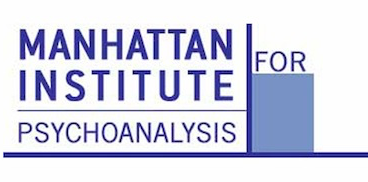In anticipation of her upcoming course, “Ecopsychoanalysis: Using Psychoanalytic Understanding to Face the Climate Crisis,” Wendy Greenspun, Ph.D., has written a moving piece about her growing awareness of the ecological crisis facing our planet. Journeying through defined stages of awakening, immersion, distress, and finally resolution, she reveals the potentially healing power of our active engagement as analysts and citizens of the world.
My awareness of the climate crisis started like tiny raindrops in a pond, splashes of recognition each time I read a news article about the catastrophic consequences of our warming world—the dramatic melting of arctic ice, devastating droughts, wildfires, hurricanes, and unprecedented species loss. Each moment of troubling recognition quickly dissipated into the normal rhythms of my life and my immediate personal concerns. Psychiatrist Robert Jay Lifton (2017) says that when we live in a functional environment, we find it hard to grasp the existential threat of the climate crisis.
My awareness grew to a steadier stream when evidence of the climate emergency touched me more directly. On a visit to the mountains in my home state of Colorado, I witnessed the marked devastation of forests, where the usual glorious blanket of green conifers had turned brown and withered. Increasing temperatures had prevented the usual winter die-off of pine beetles and the proliferating insects were devouring the trees. The familiar solace and comfort I gained in returning to the alpine landscape of my childhood was replaced with a deep sense of mourning. Searles (1960) noted that the non-human world can be as much a part of us as the parents who raise us, exerting influence, shaping parts of our inner experience. My sadness cast a shadow in the background of my mind.
A flood of recognition was unleashed when I read a fictional depiction of a dystopian future, in which the characters lamented that individuals and governments had known of increasing ecological devastation but failed to act. Stories have a way of breaking through the wall of psychic protection, helping us face the “unthought known” (Bollas, 1987). The veil of my defenses was fully lifted as I pictured my daughter and others of her generation admonishing our passivity as they faced prospective traumatic stress. Waves of guilt, anger, sadness and fear engulfed me. British psychoanalysts Paul Hoggett and Rosemary Randall (2018) describe an “epiphany,” a sudden awakening to the realities of our warming world as a common initial step in the emotional trajectory of climate awareness.
The next phase of this trajectory is “immersion,” a period of talking, thinking, reading and acting on climate change. In my own process, I read voraciously on the topic and ultimately decided to create a seminar course on Ecopsychoanalysis at Manhattan Institute with my valued colleague Elizabeth Allured. As we prepared the class, I actively thought of ways to apply my psychoanalytic knowledge of defenses, managing trauma, and processing difficult emotions to help others reckon with and engage in the ecological crisis. In this stage of immersive engagement, I read more pointedly of the overwhelming realities of ecological destruction; the political and economic obstacles to making urgently-needed changes to our way of life; and the disproportionate impact on people of color, the poor and other marginalized communities who contribute the least to causes of this oncoming threat. I began to feel more and more distressed by what I was learning, with extended periods of sleeplessness, preoccupation, anger, sadness and fear.
Hoggett and Randall refer to this phase in the arc of climate awareness as “crisis,” a period of destabilizing emotions that can feel quite overwhelming. As with other forms of trauma and grief, the capacity to work through the current pain is informed by an individual’s life history, including emotional vulnerabilities, attachment capacity and ego strengths. The crisis phase may be a time when individuals experience an exacerbation of symptoms and present for treatment. One patient who described immense climate anxiety spoke of feeling incapacitated by hopelessness and fear for her adolescent son’s future. She continually tried to shield her child from climate information, believing that this knowledge would destroy his enthusiasm for and enjoyment of life. She saw compartmentalization and avoidance as the only alternative to the unmitigated and dysregulated distress she was enduring. This tactic paralleled her mother’s tendency to disavow pain after experiencing a childhood trauma that was never addressed.
Because a crisis can become an opportunity for growth and repair, a forum for emotional processing and support becomes essential in this critical phase. During my own crisis period, Elizabeth and I scheduled weekly video conferences to discuss our emergent feelings. She became my climate analyst, helping to contain my pain with wisdom, humor and shared concern, steadying the boat on the tidal wave of my distress. My patient used our sessions to speak of her deepest fears for the future, mourning prospective losses and imagining ways to help her son cope. A group format can also broaden the feeling of social support in the face of “environmental melancholia” (Lertzman, 2015). In this vein, I have led workshops for university students in Environmental and Sustainability studies, making space for those on the front lines of climate awareness to share their emotional struggles.
The final phase in Hoggett and Randall’s schema is “resolution,” during which a more proportional emotional response emerges, accompanied by possibilities for an enlarged sense of meaning, personal agency and capacity for action. In my own climate journey, resolution has entailed an ability to better manage my existential fears, to engage in increased activism through teaching, writing and presenting, and to expand my clinical thinking to encompass climate distress. Resolution does not imply the end of the journey, but suggests a greater ability to face the uncertainty ahead. In the words of William Faulkner, “You cannot swim for new horizons until you have courage to lose sight of the shore.”
Interested in ecopsychoanalysis? Join Wendy Greenspun, Ph.D., and Elizabeth Allured, Psy.D., for their upcoming course, “Ecopsychoanalysis: Using Psychoanalytic Understanding to Face the Climate Crisis,” Saturdays, November 9 and 16, 9:30 am-12:30 pm.
$180; $120 for candidates
6 CEUs for NYS social workers
Learn more and register HERE
Wendy Greenspun, Ph.D., is on the faculty of the Manhattan Institute’s Certificate Program in Psychoanalysis and Adelphi University’s Postgraduate Program in Marriage and Couples Therapy. She is a graduate of the Manhattan Institute’s Certificate Program in Psychoanalysis and co-chair of the Curriculum Committee. She has published and presented on topics that integrate psychoanalysis and family systems theory, as well as mindfulness. As a native of Colorado, she has a deep connection to nature, and has expanded her systems thinking to include the broader natural environment. She is a supervising psychologist at Columbia University Counseling and Psychological Services and is in private practice in Manhattan.
References
Bollas, C. (1987). The shadow of the object. NY: Columbia University Press.
Hoggett, P. and Randall, R. (2018). Engaging with climate change: Comparing the cultures of science and activism. Environmental Values, 27: 223–243.
Lertzman, R. (2015). Environmental melancholia: Psychoanalytic dimensions of engagement. New York: Routledge.
Lifton, R.J. (2017). The climate swerve: Reflections on mind, hope, and survival. NY: The New Press.
Searles, H. (1960). The nonhuman environment in normal development and in schizophrenia. NY: International Universities Press.
If you enjoyed this post, we recommend:
Using Psychoanalytic Understanding to Face Climate Change by Wendy Greenspun, Ph.D., & Elizabeth Allured, Psy.D.








7 Comments
Leave your reply.